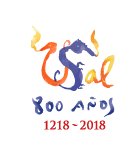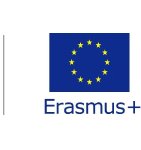ASSESSING WRITTEN INTERACTION: A TEACHERS’ GUIDE TO USING BLACKBOARD BLOGS IN THE UNIVERSITY LANGUAGE CLASSROOM
This best practice is part of a
suite of language assessment activities designed within the context of the
E-Lengua project and implemented at Trinity College Dublin’s undergraduate
institution-wide language programme Designed to assess speaking and writing
skills within the Blackboard Learn virtual learning environment, three new
teaching and assessment activities were developed in order to promote engaged and
interactive language learning and assessment supported by the use of innovative
ICT activities within a higher education context. The Blackboard Blog project
assesses written interaction. The Pecha Kucha project assesses spoken
production. The Popplet project assesses written production. Together, these
three collaborative tasks were designed to form part of a cycle of group
projects completed over two terms of class.
This teachers’ guide provides support for the use of Blackboard Blogs in the language classroom as a means of teaching and assessing written interaction skills at B1 and B2 common European proficiency levels. Blackboard Blogs are a collaborative online tool that allows students to post personal reflections and analysis. They are recognised as an effective means of sharing knowledge and materials collected and created by learners and small groups with the rest of the class. Typically, blogs comprise (i) blog entries (text, URLs, images, and attachments posted by students and open for comments) and then (ii) a comments section, with comments, remarks and responses to entries made by other learners and instructors/teaching assistants.
The Blackboard Blog function allows instructors to use three blog settings:
• Individual Blogs where each student publicly shares thoughts and work with others in the
course and to receive comments and feedback on entries.
• Course Blogs where all learners share their thoughts and work in one common area where
everyone can read and comment. All entries are posted to the same page to help promote
collaboration among all course members.
• Group Blogs allow groups of students to collaboratively post thoughts and comment on each
other’s work while all other learners can view and comment on their entry.
Blackboard Blogs allow learners to users create editable entries which may be saved as drafts before publishing. Unlike traditional written projects where the reader is often only the instructor, blogs offer the opportunity for deeper thinking on a subject and open constructive dialogue to a wider audience of readers. The assessment scheme requires students to read and comment on at least two other student blogs, and to demonstrate how to comment effectively. Blackboard Blogs provide a direct grading system, and the full range of assessment tools such as formative and summative assessment rubrics.
Blogging in general, including Blackboard’s blogging functions, has been the subject of academic discussion and investigation as a presentation format conducive to fostering student learning and engagement. This guide contains some of the most useful online links regarding use of blogs, as well as a research bibliography of more than a dozen recent academic articles reporting on the use of blogs in the university language classroom. The abstracts and web links for each article are provided.




